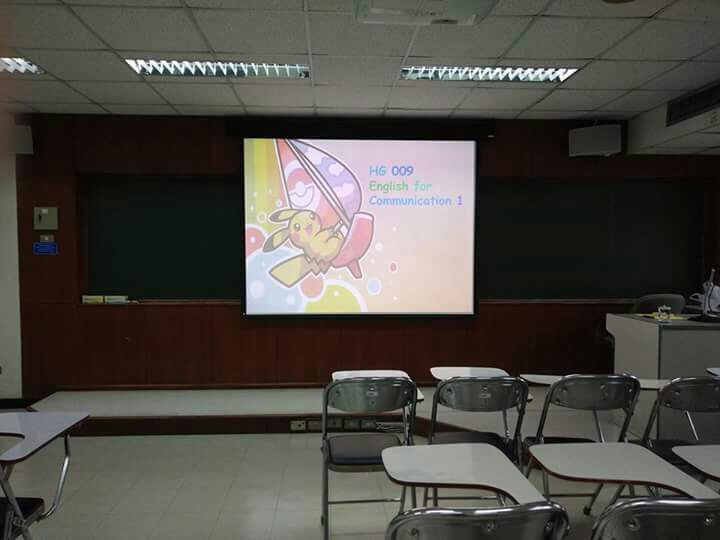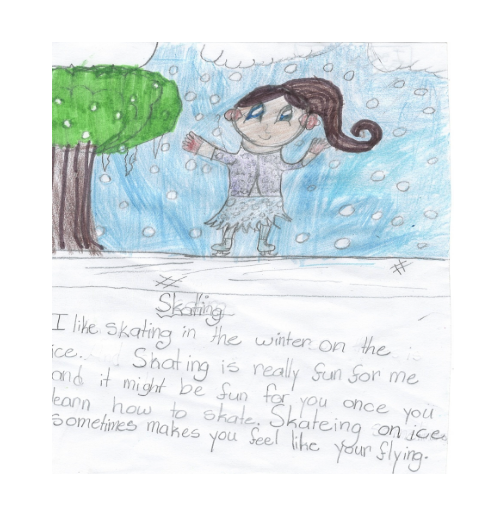While I was teaching in Turkey, I worked with a colleague who spent two years teaching in Burma and another two years in Thailand. I asked her about Thailand, since it has been a place I have always wanted to visit. She told me many stories and from this encounter and I grew interested in teaching in Thailand at some point in my career. I decided for this blog segment to interview a native teacher in Thailand and learn about her experience in the school system. I contacted Mai, who is a university teacher in Bangkok, Thailand that has taught in a variety of local settings.

Where are you from and where do you live?
I’m from Thailand and live in Bangkok
What do you do?
I am an English Instructor in a university now.
How long have you been teaching?
8 years, first in secondary schools and high school, and now university. I started my teaching career in English in a university in Bangkok, and then moved to south in Nakhon Si Thammarat to teach for 2.5 years, then after moved back to Bangkok.

Can you tell me about your school?
We do all of the courses in English, Math, Social Studies, Science, etc. At the moment I am teaching Business English. It is tricky, because we don’t have standards of the English language for the student to enter the courses, so some students have very low English level. Thus it is not easy to run a class with different levels. For example, if the students come from government schools then they have a different level, but if they come from rural areas or small towns, they are not so expert in English. So the students English varies a lot. In Thai language we have very different intonations, and we don’t have stress on words, and we don’t have final sounds, so the pronunciation is quite tricky.
Why did you join the teaching profession?
Teaching English is quite popular in Thailand. Before that I used to work as a software translator. But because English is not a national language here in Thailand, every student studies English in school. I went to get a master degree in TEFL and after I graduated I could find a job easily.

What can you share about the education system in Thailand?
In Thailand we have good schools and ‘not so good’ schools. In Bangkok there is two international universities, one government university, and one private university. The students that come from the best high schools, always compete really hard to get in to my university. The gap between these good and bad schools is really high. All these good school attract the best students, so the teachers of the other schools don’t try so hard because they have different standards. The best high school in Thailand is free, and sometimes they offer free accommodation, and sometimes they are guaranteed to enter great universities, because they aim to prepare future scientist and successful people in different industries.
What makes your school unique?
My university is quite specified for commerce. It’s quite specific in all its majors. We have a lot of connections in a lot of organizations. For examples there’s a major called entrepreneurship, students don’t pay because these companies pay for them, in exchange for them to do some work for these companies. Some other majors include accounting, tourism industry, international business administration, law, and also languages: Chinese, Korean, Japanese.
What do you love about your students?
They are very funny. The classes could vary from around 19-50 students in one class. Mostly my classes have 30 students. Because we split them according to major, and not English proficiency. So the entire major does every subject together. All of my students are Thai. For language majors, most students are female. Accounting also female, Law mostly guys. But for engineering, of course, most are male. And this semester I have a TV broadcasting class, and that was about 50/50.
Share your story about a memorable classroom experience.
Sometimes my students act more like kids in class rather than grown up university students. In Thai culture seniority is an unimportant part, so being a teacher isn’t really seen as respectful. Well my students are very funny and cheeky. They always find a way to have a laugh. One afternoon, after reading a passage about types of tourism, I asked my students where backpackers stay. They shouted answers like it was a game. “In the deep forest where it is free to stay”, “At motels”, “At Thai temples because it’s free or almost free to stay”, “They can stay at wherever they want. It’s their right, teacher!”. I wasn’t sure if my students could understand what backpackers meant, unless they were just having fun with me.
Then, I asked them to give some examples of adventure holidays. Some of their answers were:
“Swimming with piranhas”, “Jumping from the airplane without any parachute. Is that adventurous enough, teacher?”. Then, out of nowhere, a boy raised his hand and said, “The most adventurous trip should be skipping school in the middle of the day.” I was a bit in shock.
He then explained, “I have to jump over the fence very fast before any teacher sees me. It’s more exciting than anything I know! It should be considered a holiday cause I won’t study for the rest of the day, right? I’m answering the question correctly, teacher. You are too slow to understand.” Sometimes I allow them to be silly and enjoy the classroom atmosphere, but then other times I tell them what a real answer should be. I really enjoy their sense of humor though.
Tell us your favorite places on the Earth.
Turkey is my favourite country traveled, especially Ortahisar, Cappadocia. People were so friendly, most people just wanted to hug me. One day while walking back to my hotel, some young teenagers stopped their bikes and tried to give me almost all fruits they had bought. Also I loved South America, I went to Peru and Bolivia for 6 weeks last year. I loved La Paz, Bolivia. I think Bolivia is so special, people are genuinely nice, and cool street art. And people are so relaxed and do what they want, they can sing in the middle of the street for example.
Thank you Mai for sharing your stories.
I found it interesting to hear the point of view of a local person about teaching English in Asia. Mai had many more stories about her students and the type of courses she has taught. Although lower pay, Thailand is one of the most popular countries to teach English in Asia. It is mainly known for its beautiful beaches and scenery, but as Mai mentioned, in the past decade the education system has changed quite a bit, and the standards have increased, especially in the capital, to prepare the new generation for the competitive world.


